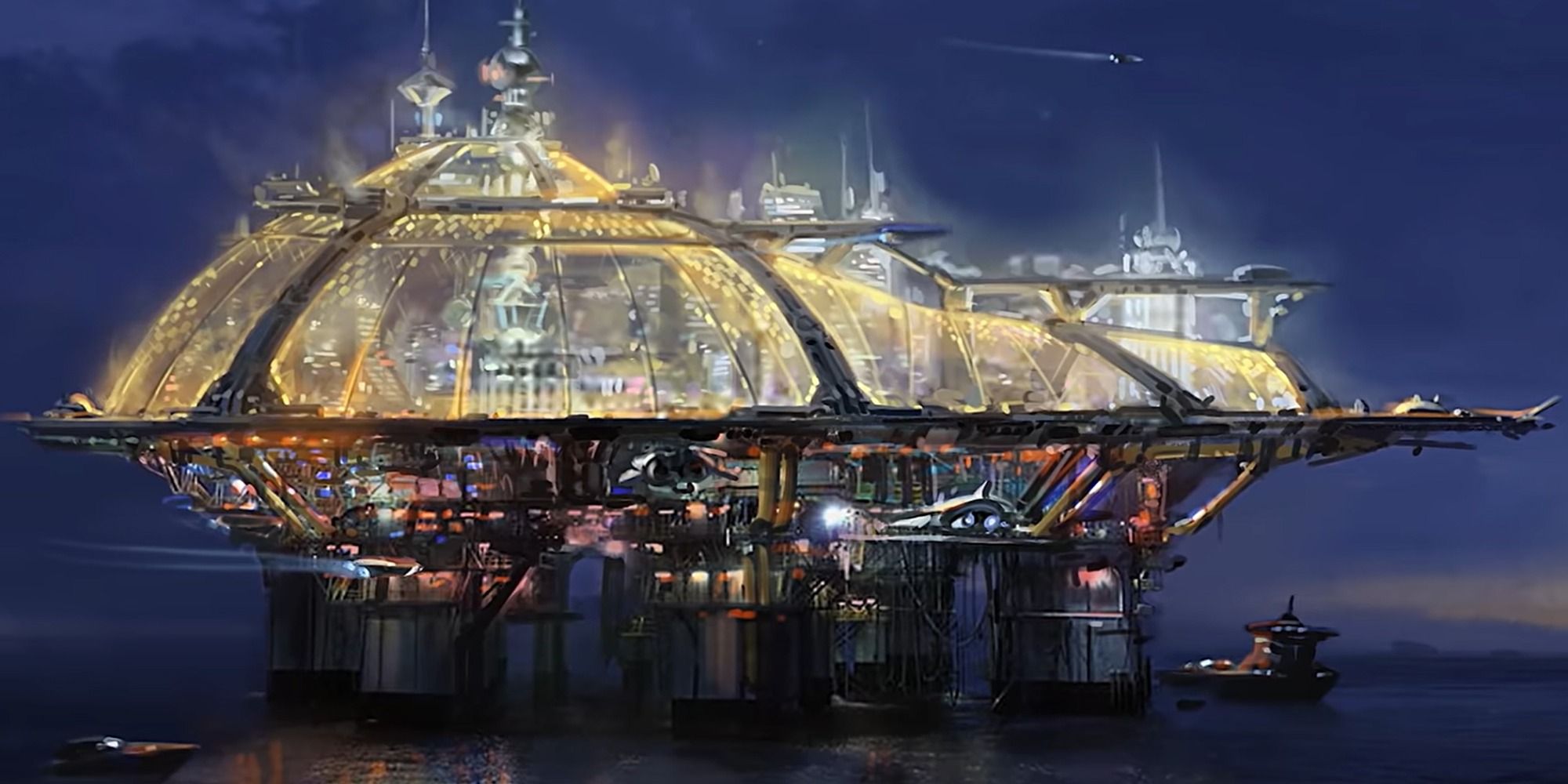There’s a certain standard all worthwhile science fiction needs to meet in order to be taken seriously. Yes, it can be fun to have lasers and hover cars and cybernetic augmentations, but for sci-fi to be good, it needs to be hard - it needs to make sense. Consider Mass Effect, BioWare’s revered space opera: Back in February, I had a chat with the writer who is widely considered to be its “loremaster” about building cohesive sci-fi universes. To him, it’s all down to logical consistency and a relentless drive to push everything as far as it can go, and then some. When I first saw Starfield, I wasn’t convinced it could live up to that kind of intense, almost pedantic methodology. Now, approximately a year out from launch, I can finally breathe easy in the knowledge that, actually, Starfield looks great.
Science fiction is not my favourite genre. While I’ve played a whole lot of sci-fi games, my literary tastes skew towards the likes of Vonnegut, Ellison, and Huxley far more so than Asimov, Chiang, and Gibson. I like what little I have read of VanderMeer, Lem, and Miéville and while his indulgence in science fiction is admittedly reserved and light, I’d consider myself extremely well read on Orwell. In terms of film, I’m a huge fan of Blade Runner, Stalker, and The Matrix. What I mean is, even though I prefer fantasy, I’m pretty well-versed in sci-fi, too. I’ve got credentials - I’m not just talking out my arse.
So when I say Starfield’s sci-fi is surprisingly well-considered, it’s coming from a place of legitimately pleasant surprise. I actually think Bethesda does a pretty great job of writing compelling fantasy for The Elder Scrolls, although the older I get, the more juvenile Fallout starts to seem. “Juvenile” might be too harsh a word, but there are very few other terms capable of communicating what I mean - I reckon it’s not as mature or clever or nuanced as it likes to think it is, and that good art is referenced, it doesn’t reference. Fallout has a pop culture joke every 42 seconds.
Starfield, on the other hand, has psychedelic fish that you lick to get off your tits. It has oppressive megacorps and imposing skyscrapers and voguish fashion that screams retro NASA. There are domed cities stranded in the middle of the ocean, concrete jungles painted neon, and yet another Mos Eisley-like that, for once, doesn’t actually feel completely derivative of Mos Eisley. That, in and of itself, is pretty damn impressive.
The thing about sci-fi is that it mostly succeeds thematically. I mean, obviously sci-fi screen media is intensely invested in aesthetic integrity and stylistic identity, but in terms of the narrative structure, it’s not the prose that matters - a lot of the time, good sci-fi doesn’t even necessarily need to be overly character-driven. These speculative visions of the future are designed with contemporary critique in mind, and so every single technological advancement or societal misstep or political shitstorm is immediately indicative of something that was, is, or will be in the real world. To reiterate, I am talking about good sci-fi here. Not all sci-fi does this - only good sci-fi does.
Consider the aforementioned psychedelic fish. In Brave New World, Huxley writes about soma, a pleasure-inducing drug that causes people to become apathetic as a result of prolonged artificial happiness - essentially, soma is scientifically and psychologically engineered to breed complacency. In Cat’s Cradle, Vonnegut’s ice-nine compound totally destroys the island of San Lorenzo - any attempt at reclaiming it likely wouldn’t be too far away from Starfield’s Neon. I guarantee there will be Ellison-esque, Ticktockman absurdity in every corner of New Atlantis. Starfield, from the three developer commentaries we’ve seen of the New Atlantis, Neon, and Akila locations, clearly recognises and understands its various origins and has attempted to reconcile them into its core genesis, which looks almost immiscible with itself and yet somehow still cohesive. It’s a game that is coherent because it is inherently contradictory, and acknowledging these contradictions is the best way of logically connecting them.
Sound wanky? It is! We’re talking about literary sci-fi here and how logic systems - and, usually, some sort of natural propensity for rebellion - are at the heart of constructing worthwhile themes in science fiction. I know we’re a year away from launch and a lot of this might ostensibly appear to be little more than projection, but I mean it: Starfield, a game I was not even remotely excited about given Bethesda’s history, looks excellent. It’s not because these are the lads wot did Skyrim or because I know there are zillions of dollars being thrown at this thing - it’s because what we’ve seen looks good.
Starfield’s sci-fi looks like a real hoot - it’s knowledgeable enough to know how important a good laugh is to the genre, but smart enough to know that said laughs only exist to bridge the political gaps necessary for sending its intended message. No politics in games? My arse. Without politics, Starfield would be little more than a vague notion at the back of someone’s head. I reckon Team Todd is going to go pretty hard with this one. Personally - and unexpectedly - I, for one, can’t wait.

